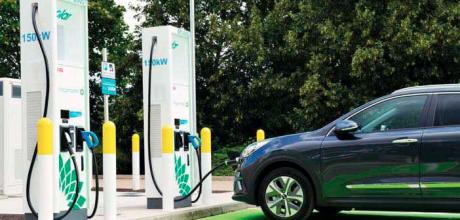Cost of EV charging shoots up
Running a petrol engined car can now be cheaper than an EV, says Nigel Boothman
The RAC has identified a steep rise in the cost of electricity at EV charging points, especially at fast chargers. The organisation also discovered a huge variation in the cost of charging an electric car in different places, and at different times – more than most users realise.
For pay-as-you-go use of the fastest chargers, the cost of charging an EV is surprisingly close to that of filling a petrol car and can exceed it, even after the recent hikes in petrol and diesel prices.
Zap Map runs a website (zap-map.com) aimed at explaining the different charging options and keeping users up to date with costs. They quote current prices for using BP’s Pulse chargers for non-members at 40p/kWh for fast chargers, 50p/kWh for rapid chargers and 55p/kWh for ultra-rapid points. This is approximately double what was charged a year ago, according to an RAC report from May 2021. This compares with home-charging for as little as 5p/kWh if you have the lowest off-peak tariff at home.
BP Pulse Membership, charged at £7.85/ month, knocks between 10p and 15p per kWh off the prices above, but Zap Map lists 16 different networks you are likely to encounter in the UK, most of which need you to install their app and some of which require subscription for the best prices. Among the non-subscription networks, prices can be higher still. Ionity has a network of ultra-rapid chargers on motorways, but currently charges 69p/kWh.
A Vauxhall Corsa-E has a 50kWh battery and achieves an average real-world range of 174 miles on a full charge, according to Autocar’s road test. It would cost £34.50 to recharge from empty at an Ionity charger. A 1.2-litre petrol Corsa gets 42mpg overall (though more on the motorway) and so in mixed driving would need 18.8-litres of fuel to cover the same 174 miles. At £1.60 a litre, this will cost £30.08. At a more direct comparison of motorway prices, say £1.80 a litre, it comes out at £33.84, still cheaper.
Why is the price of rapid charging so high? In part, because the costs of leasing a motorway site to install rapid chargers may be higher, but mainly because the operators feel they can charge more the faster a charger performs – time is money. But another reason that any public charger will cost far more than any domestic supply is ‘the bizarre way that electricity is taxed’, says RAC fuel spokesman Simon Williams. ‘Right now, VAT on electricity from a public charger is levied at a rate four times that which applies to domestic electricity, which makes it far more expensive to charge on-the- go than it should be,’ he said.
Charging an EV at a fast charger can now be more expensive than a tank of fuel.


